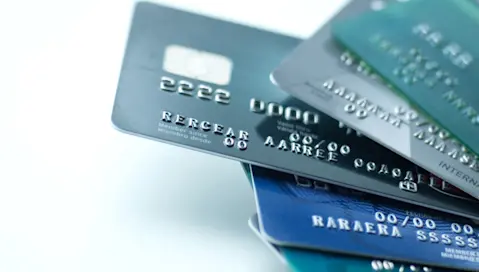A Merchant’s Guide to PCI Compliance
A Merchant’s Guide to PCI Compliance
A Merchant’s Guide to PCI Compliance
3 Feb 2022
Aptean Staff Writer
Processing credit card payments for your business? This blog post is for you.
In today's bustling world, credit card payments are quick and efficient, get you paid faster and are often completed without ever physically swiping a card.
All you need is the customer's credit card number, and you are good to capture funds and close out the invoice. The question is, how do you gather the credit card info securely and in a way that maintains Payment Card Industry (PCI) compliance?
This post aims to answer this question and take a deeper dive into PCI compliance and its' implications on your business.
Let’s start with the basics…
What Is PCI Compliance and Why Should You Care?
PCI compliance refers to the technical and operational standards set out by the PCI Security Standards Council that organizations need to implement and maintain.
Simply put, PCI standards are guidelines for businesses that process credit card payments to protect themselves and their customers.
The goal of being PCI compliant is to protect cardholder data and applies to any organization that accepts, transmits, or stores that data. Being PCI compliant isn't just a safeguard for your customers; it protects your organization.
Over 1,000 data breach reports in 2020
Lacking Compliance: A Risky Business for Companies and Consumers
The number of data breaches in the U.S. has skyrocketed in the past decade - from only 662 reported in 2010 to over a thousand reports in 2020 (Statista).
We've all at one time, or another, put ourselves at risk – often without even knowing it. Perhaps by filling out a credit card form and emailing it over to a business that then processes your credit card against a payment, recurring or a one-time transaction. Whether you’re on the consumer or business end of this transaction, both parties are exposed to risk.
By stealing only 10 credit cards per merchant, cyber criminals earn up to $2.2 million through form-jacking attacks (Symantec).
From a consumer perspective, we have no way of knowing what happens to that form after processing that payment but from a business perspective it is imperative to know. Is it stored in a secure file, or does it continue to sit in that inbox where a data breach could occur? Would you be at risk, or would the company holding onto that form? What are the possible repercussions?
We usually don't ask these questions because we trust that the right processes are in place to protect us as consumers and as businesses. This is where PCI standards and compliance come in.
Potential Liability for Your Business
Being PCI compliant means having the right tools and processes in place to protect your organization and your customers from transactional data breaches. By not complying with these standards, you put thousands of sensitive records at risk, jeopardizing your customers' information security while exposing your business to costly fallout.
The global average cost of a data breach to an organization is $3.86 million (IBM).
In accordance with the Payment Card Industry, the company holding the data would be liable for any damages that arise from a security breach. Liability means taking full responsibility for any aftermath that follows the breach.
This damage is costly to businesses, resulting in millions of lost dollars as demonstrated above, as well as a lost reputation. Arguably the latter damage takes the most considerable toll on an organization because every time a consumer swipes their credit card, they are putting trust into your business and with every transaction comes a risk to their information security.
Global average of data breach costs $3.86M in damages to businesses
Get Ahead With Watertight Compliance
Although PCI compliance standards apply to any business processing credit card payments, the set of standards or the “level” of compliance that must be met depends on the annual amount of transactions processed. The levels apply as follows:
Level 1: Merchants processing over 6 million transactions annually.
Level 2: Merchants processing 1 to 6 million transactions annually.
Level 3: Merchants processing 20,000 to 1 million transactions annually.
Level 4: Merchants processing fewer than 20,000 transactions annually
Identifying which level of compliance standards your organization must follow is the first step to getting ahead.
If you are considered a Level 1 merchant, you will be required to comply with annual 3rd party audits, network scans, and produce reports supporting your compliance level.
Merchants that fall into Level 2, 3, and 4 are required to conduct the PCI DSS Self-Assessment Questionnaire and comply with quarterly network scans conducted by an approved scanning vendor.
The second step in tackling PCI compliance is understanding that data breaches happen, and that no organization is immune, especially without proper protection. The third is ensuring that appropriate security tools and processes are in place to protect your business and your customers. With regulations shifting just as fast as technology progresses, the best way to accomplish this is through security tools, such as online compliance management solutions that help your organization remain compliant with the latest security standards.
Keep it Simple – Trust the Experts
The easiest way to get peace of mind and guarantee a strong security position is by leaving the heavy lifting to the experts. This means choosing a partner who has the ability, experience and knowledge to protect your business and compliance status. They will be your go-to for security best practices and your first line of defense against a breach.
With billions of credit card transactions processed every day, bringing in a partner processor to focus solely on security and fraud protection means not having to worry about the day-to-day security concerns. PCI compliance can instead be left to the professionals who spend dedicated time and attention ensuring these standards are met and maintained. Integrating your credit card processing tool with your ERP solution allows you to conduct and manage all facets of your business in one secure, centralized database. Real time communication between your ERP and credit card processing solution reduces manual input errors and saves your business time and money while minimizing risk.
When you choose a credit card processor that maintains PCI compliance standards, your teams have all the tools they need to process and transmit data securely so that you can focus on the core of your business with next-level peace of mind.
Have more questions about credit card processing solutions and PCI Compliance? Check out our digital payment platform solution, Aptean Pay, and reach out to Aptean's industry experts today to get your business Ready for What's Next, Now®.
¿Todo listo para transformar tu negocio?
Tenemos el software especializado en tu sector que ayudará a tu organización a prosperar.



